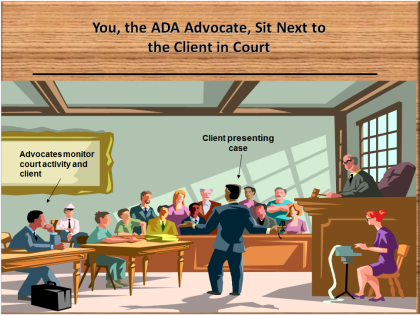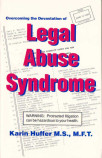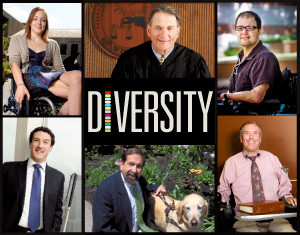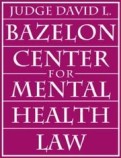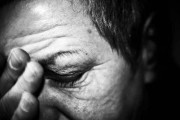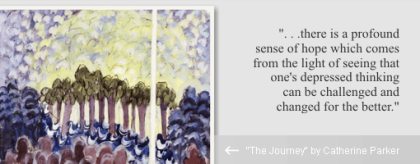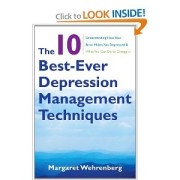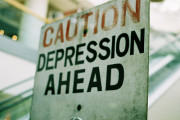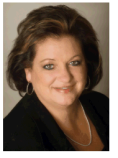Disability - ADA - Legal Abuse Syndrome
Dr. Karin Huffer, Equal Access Advocates, LLC
Our Mission is to ensure equal access to the judicial system, by moving toward a social model over medical model for providing accommodations under the Americans with Disabilities Act.
We promote a fair court process with an attitude of inclusion and tolerance. Our advocates enhance security, dignity and respect for every person. We support the economy of the court by improving communication, acting as liaisons, and we assist the court in eliminating risk of HIPPAA violations or exploitation of those with special needs.
Our mission is affirmed by the universal declaration of human rights, 1948, the convention on the elimination of discrimination against women of 1979, The ABA Resolution of 2002, The Americans with Disabilities Act Titles II & III, of 1990, the ADAAA of 2008, and the International Treaty for the Disabled of 2009.
Legal Abuse Syndrome
Warning: Protracted litigation can be hazardous to your health
Dr. Karin Huffer is the author of "Overcoming the Devastation of Legal Abuse Syndrome"
Dr. Karin Huffer represents clients under the Americans with Disabilities Act (ADA) as an advocate and accommodation designer.
Disability.gov - Connecting the Disability Community to Information & Opportunities http://www.disability.gov/
20th Anniversary of the Americans with Disabilities Act
20th Anniversary of the Americans with Disabilities Act
For generations, millions of people with disabilities lived as second-rate citizens in a society based on the promise that "All men are created equal" and where "Life,
Liberty, and the Pursuit of Happiness" are considered unalienable rights. People with disabilities were routinely sterilized and institutionalized. There were no laws to ensure access to or a benefit
from the most basic of freedoms a majority of Americans have always taken for granted. Read more here
Americans with Disabilities Act (ADA)
A Guide to Disability Rights Laws, U.S. Department of Justice, Civil Rights Division, Disability Rights Section
ADA Amendments Act of 2008
PUBLIC LAW 110–325
SEPTEMBER 25, 2008
The Americans with Disabilities Act (ADA) of 1990, as amended
Wikipedia, ADA Amendments Act of 2008
Wikipedia, Americans with Disabilites Act of 1990
Wikipedia, Rehabilitation Act of 1973
The Federal Protection and Advocacy for Mentally Ill Individuals Act
§ 10801. Congressional findings and statement of purpose a) The Congress finds that (1) individuals with mental illness are vulnerable to abuse and serious injury; Read more here
Civil Rights and supporting laws
42 USC, CHAPTER 21, SUBCHAPTER I - GENERALLY
§ 1981 Equal rights under the law
§ 1983 Civil action for deprivation of rights
§ 1985 Conspiracy to interfere with civil rights
§ 1988 Proceedings in vindication of civil rights
29 USC, CHAPTER 16—VOCATIONAL REHABILITATION AND OTHER REHABILITATION SERVICES Rehabilitation Act of 1973
TITLE 28—JUDICIAL ADMINISTRATION
CHAPTER I—DEPARTMENT OF JUSTICE
PART 35 -- NONDISCRIMINATION ON THE BASIS OF DISABILITY IN STATE AND LOCAL GOVERNMENT SERVICES
Title II ADA complaint form in PDF, and this link to the form
Title II ADA complaint form, DOJ.pdf
Adobe Acrobat document [16.3 KB]
Equal Access to Justice Act
United States Small Business Administration, link to The Equal Access to Justice Act (EAJA) (5 U.S.C. § 504; 28 U.S.C. § 2412) provides for the award of attorney fees (up to $125 per hour) and other expenses to eligible individuals and small entities that are parties to litigation against the government. Cornell University College of Law, link to 5 U.S.C. § 504. Costs and fees of parties
July 26, 2007 — Senator Tom Harkin discussing the Americans with Disabilities Restoration Act which would strengthen and clarify the original ADA Act that Sen. Harkin helped pass in 1990
Hillsborough County Sheriff abuse of disabled man
Hillsborough Sheriff Deputy Charlette Marshall-Jones dumped quadriplegic Brian Sterner out of a wheelchair and onto a jail floor.
Depression more damaging than some chronic illnesses
Reuters, by Michael Kahn
September 7, 2007
Depression is more damaging to everyday health than chronic diseases such as angina, arthritis, asthma and diabetes, researchers said on Friday.
And if people are ill with other conditions, depression makes them worse, the researchers found. "We report the largest population-based worldwide study to our knowledge
that explores the effect of depression in comparison with four other chronic diseases on health state," the researchers wrote in the Lancet medical journal.
Somnath Chatterji of the World Health Organisation, who led the study, said researchers calculated the impact of different conditions by asking people questions about
their capacities to function in everyday situations --such as moving around, seeing things at a distance and remembering information.
The Lancet, Volume 370, Issue 9590, Pages 851 - 858, September 8, 2007
PIIS0140673607614159.pdf
Adobe Acrobat document [120.2 KB]
National Alliance on Mental Illness
From its inception in 1979, NAMI has been dedicated to improving the lives of individuals and families affected by mental illness.
For three decades, NAMI has established itself as the most formidable grassroots mental health advocacy organization in the country. Dedication, steadfast commitment and
unceasing belief in NAMI's mission by grassroots advocates have produced profound changes. NAMI's greatest strength is the dedication of our grassroots leaders and members. We are the families,
friends and individuals that serve to strengthen communities across the country. Read
more
NAMI Wikipedia
The Bazelon Center for Mental Health Law is a nonprofit organization devoted to improving the lives of people with mental illnesses through changes in policy and law. For nearly four decades our legal and policy advocates have engaged in impact litigation, policy reform and public education to ensure the rights of people with mental illnesses in all areas of life, including housing, employment, education, public systems, health care, the judiciary and more. Read more
The Bazelon Center Wikipedia
The aim of Disabled World is to provide a useful resource of
information and news to the Disability Community, Organisations, and Rights Campaigners, via our Disability News Service, Articles, and Videos.
About 1 in 5 U.S. residents - 19 percent - reported some level of disability in 2005. These 54.4 million Americans are roughly equal to the combined total populations of California and Florida - U.S.
Census Bureau.
Many books point out 'disabled' is an identity that one is not necessarily born with, as disabilities are more often acquired than congenital. Most people will develop disabilities at some point
during their lives due to accidents, illness (physical, mental or emotional), or late-emerging effects of genetics.
Disability studies is a relatively new interdisciplinary academic field focusing on the roles of people with disabilities in history, literature, social policy, law,
architecture, and other disciplines. Although it has many antecedents, disability studies began to flourish toward the end of the twentieth century.
Issues and debates surrounding disabilities include social and political rights, social inclusion and citizenship. In developed countries, the debate has moved beyond concerns about the perceived
cost of maintaining dependent people with disabilities to efforts of finding ways to ensure people with disabilities participate in and contribute to today's society in all spheres of life.
In the late 20th and early 21st centuries, a number of countries have passed laws aimed at reducing discrimination against people with disabilities. These laws have begun to appear as the notion of
civil rights has become more influential globally.
Disability Rights: The Disability Rights Movement aims to improve the quality of life of people with disabilities and to confront disadvantages and discrimination. A major concern is achieving civil
rights for people with disabilities. This is further broken down into issues of accessibility in transportation, architecture, and the physical environment and equal opportunities in employment,
education, and housing. Access to public areas such as city streets and public buildings and rest rooms are some of the more visible changes brought about in recent decades. A noticeable change in
some parts of the world is the installation of elevators, transit lifts, wheelchair ramps and curb cuts, allowing people in wheelchairs and with other mobility impairments to use public sidewalks and
public transit more easily and more safely.
Lives Restored
The New York Times
A series profiling people who are functioning normally despite severe mental illness and have chosen to speak out about their struggles. Read more
Expert on Mental Illness Reveals Her Own Fight
The New York Times
by Benedict Carey
June 23, 2011
HARTFORD — Are you one of us?
The patient wanted to know, and her therapist — Marsha M. Linehan of the University of Washington, creator of a treatment used worldwide for severely suicidal people —
had a ready answer. It was the one she always used to cut the question short, whether a patient asked it hopefully, accusingly or knowingly, having glimpsed the macramé of faded burns, cuts and welts
on Dr. Linehan’s arms:
"You mean, have I suffered?"
"No, Marsha," the patient replied, in an encounter last spring. "I mean one of us. Like us. Because if you were, it would give all of us so much hope."
"That did it," said Dr. Linehan, 68, who told her story in public for the first time last week before an audience of friends, family and doctors at the Institute of
Living, the Hartford clinic where she was first treated for extreme social withdrawal at age 17. "So many people have begged me to come forward, and I just thought — well, I have to do this. I owe it
to them. I cannot die a coward." Read more here
No one knows how many people with severe mental illness live what appear to be normal, successful lives, because such people are not in the habit of announcing
themselves. They are too busy juggling responsibilities, paying the bills, studying, raising families — all while weathering gusts of dark emotions or delusions that would quickly overwhelm almost
anyone else. Read more
Learning to Cope With a Mind’s Taunting Voices
The New York Times
by Benedict Carey
August 6, 2011
LEE’S SUMMIT, Mo. — The job was gone, the gun was loaded, and a voice was saying, "You’re a waste, give up now, do it now."
It was a command, not a suggestion, and what mattered at that moment — a winter evening in 2000 — was not where the voice was coming from, but how assured it was, how
persuasive.
Losing his first decent job ever seemed like too much for Joe Holt to live with. It was time.
"All I remember then is a knock on the bedroom door and my wife, Patsy, she sits down on the bed and hugs me, and I’m holding the gun in my left hand, down here, out of
sight," said Mr. Holt, 50, a computer consultant and entrepreneur who has a diagnosis of schizophrenia.
"She says, ‘Joe, I know you feel like quitting, but what if tomorrow is the day you get what you want?’ And walks out. I sat there staring at that gun for an hour at
least, and finally decided — never again. It can never be an option. Patsy deserves for me to be trying."
In recent years, researchers have begun talking about mental health care in the same way addiction specialists speak of recovery — the lifelong journey of self-treatment
and discipline that guides substance abuse programs. The idea remains controversial: managing a severe mental illness is more complicated than simply avoiding certain behaviors. The journey has more
mazes, fewer road signs.
Yet people like Joe Holt are traveling it and succeeding. Most rely on some medical help, but each has had to build core skills from the ground up, through trial and
repeated error. Now more and more of them are risking exposure to tell their stories publicly. Read
more
A High-Profile Executive Job as Defense Against Mental Ills
The New York Times
by Benedict Carey
October 22, 2011
PASADENA, Calif. — The feeling of danger was so close and overwhelming that there was no time to find its source, no choice but to get out of the apartment,
fast.
Keris Myrick headed for her car, checked the time — just past midnight, last March — and texted her therapist.
"You’re going to the Langham? The hotel?" the doctor responded. "No — you need to be in the hospital. I need you consulting with a doctor."
"What do you think I’m doing right now?"
"Oh. Right," he said. "Well, O.K., then we need to check in regularly."
"And that’s what we did," said Ms. Myrick, 50, the chief executive of a nonprofit organization, who has a diagnosis of schizoaffective disorder, a close cousin of
schizophrenia, and obsessive-compulsive disorder. "I needed to hide out, to be away for a while. I wanted to pamper myself — room service, great food, fluffy pillows, all that — and I was lucky to
have a therapist who understood what was going on and went with it."
Researchers have conducted more than 100,000 studies on schizophrenia since its symptoms were first characterized. They have tested patients’ blood. They have analyzed
their genes. They have measured perceptual skills, I.Q. and memory, and have tried perhaps thousands of drug treatments.
Now, a group of people with the diagnosis is showing researchers a previously hidden dimension of the story: how the disorder can be managed while people build full,
successful lives. The continuing study — a joint project of the University of California, Los Angeles; the University of Southern California; and the Department of Veterans Affairs — follows a group
of 20 people with the diagnosis, including two doctors, a lawyer and a chief executive, Ms. Myrick. Read
more
Finding Purpose After Living With Delusion
The New York Times
by Benedict Carey
November 25, 2011
ATHENS, Ohio — She was gone for good, and no amount of meditation could resolve the grief, even out here in the deep quiet of the woods.
Milt Greek pushed to his feet. It was Mother’s Day 2006, not long after his mother’s funeral, and he headed back home knowing that he needed help. A change in the
medication for his schizophrenia, for sure. A change in focus, too; time with his family, to forget himself
And, oh yes, he had to act on an urge expressed in his psychotic delusions: to save the world.
So after cleaning the yard around his house — a big job, a gift to his wife — in the coming days he sat down and wrote a letter to the editor of the local newspaper,
supporting a noise-pollution ordinance.
Small things, maybe, but Mr. Greek has learned to live with his diagnosis in part by understanding and acting on its underlying messages, and along the way has built
something exceptional: a full life, complete with a family and a career.
He is one of a small number of successful people with a severe psychiatric diagnosis who have chosen to tell their story publicly. In doing so, they are contributing to
a deeper understanding of mental illness — and setting an example that can help others recover. Read more
Law Practice Can Trigger Stress Disorder, Says Attorney Who Now Works as Therapist
ABA Journal Law News Now
by Martha Neil
March 17, 2010
A sense of impending doom is a common feeling for many attorneys in practice: From the mistake made when drafting a document or taking a deposition to a transgression that you may not even be aware
of yet, there's always something lurking in your consciousness to produce a feeling of being "in trouble."
For him personally, writes Will Meyerhofer, a former BigLaw associate who now works as a psychotherapist, "it got to the point for me, at Sullivan & Cromwell, that I
felt my entire body clench in preparation for attack just walking through the doors of 125 Broad Street and stepping into that elevator." His post, however, indicates that law practice, in general,
rather than any particular law firm, is the cause of such stress.
Such feelings of constant anxiety, he says in a People's Therapist post,
can rise to the level of a diagnosable case of post-traumatic stress disorder, which is characterized by a state of hyper-vigilance to potential attack, a deadening of
emotions and flashbacks or nightmares concerning stressful situations.
Creating a "safe zone" within a difficult work environment, so that you can let your guard down and relax, can make a critical difference, Meyerhofer says. (He also
advises finding another position if a job is too stressful.) Read more
Will Meyerhofer, JD LMSW is a psychotherapist in private practice in Lower Manhattan, in New York City. You can visit his private practice website at: www.aquietroom.com. He holds degrees from Harvard, NYU School of Law and The Hunter College School of Social Work. He likes to do things differently. This is your space, too, and psychotherapy is experiential. Let's relate and explore together. Read more
Life is a Brief Opportunity for Joy by Will Meyerhofer, JD LMSW.
Disability Rights Network of Pennsylvania
MISSION STATEMENT: The mission of the Disability Rights Network of Pennsylvania is to advance, protect, and advocate for the human, civil, and legal rights of
Pennsylvanians with disabilities. Read more
Pennsylvania Disability Advocates Seek to Thwart Governor’s
Budget Plan with Lawsuit
ABA Journal Law News Now
By Debra Cassens Weiss
March 16, 2012
Disability advocates have filed a lawsuit that claims Pennsylvania Gov. Tom Corbett violated state law with a budget proposal.
The suit by the Disability Rights Network of Pennsylvania says Corbett has proposed combining funding for several public welfare programs into block grants that would be
dispensed to counties. The proposal violates state law, the suit says, because funding must be specifically allocated to programs for mental illness and intellectual disabilities. The Pittsburgh Post-Gazette and the Patriot News have stories.
Kelli Roberts, a spokeswoman for the governor, says the lawsuit is premature. "The governor has put this on the table as a proposal, but everything is being negotiated
and everything may change," Roberts told the Patriot News. "So at this point in time, a lawsuit is frivolous." Read more
The Legal Clinic for the Disabled, Inc.
Phone: 215-587-3350
Since 1990, the Legal Clinic for the Disabled, a 501(c)(3) non-profit corporation with offices at Magee Rehabilitation Hospital, has helped thousands of people. We help victims of domestic violence
get legal protection from their abusers. We represent victims of identity theft and consumer fraud. We help parents and care givers access healthcare for their children. We write wills, powers of
attorney and living wills. Most of our clients experience physical limitations in their daily activities, and many have suffered catastrophic injuries or illnesses like stroke, spinal cord or brain
injury, multiple sclerosis, cancer, advanced diabetes, glaucoma, AIDS, amputation or epilepsy. Our services help them overcome legal problems and continue living comfortably and independently in the
community.
Employee Fired Because of Depression Wins Right to Jury Trial
Ellen Simon is recognized as one of the first and foremost employment and civil rights lawyers in the United States. Today, Ellen offers legal advice to individuals with legal problems surrounding employment rights, age/gender/race or disability discrimination, workplace retaliation and sexual harassment. Ellen's a legal analyst and is available to discuss high-profile civil cases, employment discrimination and women's issues. Quoted often in local and national news media, Ellen is a regular guest on television and radio, including appearances on Court TV.
Lawyer Produces Documentary Addressing Depression Among Lawyers
ABA Journal Law News Now
Posted November 24, 2010
by Stephanie Francis Ward
Daniel Lukasik, a Buffalo, N.Y., lawyer who also founded the website and companion blog Lawyers with Depression, recently produced a short documentary on the same subject, which he hopes will be
shown at law schools around the country.
Titled A Terrible Melancholy: Depression in the Legal Profession, the film focuses on the stories of lawyers and judges. Included in the mix is Abraham Lincoln, who according to a Lawjobs.com article
fought with depression his entire life.
"The film is meant to educate and inform people about what depression is and what it isn't, and also to destigmatize it in the legal profession," Lukasik told Lawjobs.com. "I think it's a huge
stigma. Lawyers are supposed to be problem-solvers. We've not supposed to have problems."
To finance the film, Lukasik got money from the Erie County, N.Y., Bar Foundation, the New York Lawyer Assistance Trust and the Margaret L. Wendt Foundation. The Erie
County Bar Foundation is making the film available to law schools and practitioners.
Every state has some form of confidential support program for lawyers struggling with substance abuse or emotional problems. Many state bars have affiliated programs
while others run separate nonprofit groups staffed by volunteers. The programs vary, though most offer personal and career counseling, as well as referrals to other resources. Some offer individual
and group therapy sessions. Some also serve law students and judges.
The ABA commission develops educational materials for lawyers about substance abuse, stress, depression and other mental health issues, and it works closely with lawyer
assistance programs run by state and local bar associations. A directory of those programs, along with other training and educational materials, publications, products and related resources, is
available on the commission’s website at abanet.org/legalservices/colap.
The commission also maintains a referral hotline for lawyers in crisis at 1-866-LAW-LAPS. Read
more
Lawyers with Depression website
Depression is often a very isolating experience—even when the depressed person has a supportive and loving group of people to rely on.
In my own life, I often found relief in reading books about depression, spirituality or health and trying to relate the wisdom in those books to my own life as a lawyer.
When I searched on-line for materials to read that would support me in my attempt to cope with depression and my law practice, what I found was sometimes helpful, but in the end, not
sufficient. Read more
The 10 Best-Ever Depression Management
Techniques: Understanding How Your Brain Makes You Depressed and What You Can Do to Change It on Amazon.com
People suffering from clinical depression and who feel that they are to blame for their debility may take comfort in psychologist Wehrenberg’s deconstruction of the
depressed brain. In language that is unavoidably technically complicated on occasion, she explains how the intricate workings of the physical brain affect the emotions, not only causing and
sustaining depression, but reinforcing it as well. She also describes how the different types of prescription medications work on the brain’s chemical processes to help alleviate depression’s
symptoms. As a practicing psychologist, Wehrenberg additionally promotes the added benefit of talk therapy. But recognizing that not everyone has means to access a licensed therapist, she offers some
of her own tried-and-true methods for self-help. Appendixes include additional reading plus a number of charts, questionnaires, and graphs to guide readers in their recovery efforts. In steps that
are both clear and scaled for easily attainable victories, Wehrenberg extends a hand to those without the recourse of clinical therapy. --Donna Chavez
Lawyers with Depression, ABA Journal Law News Now story
ABA Journal Law News Now
"Reflections and commentaries about the impact of depression on the legal profession. Depression is a widespread problem for lawyers. Studies indicate that they suffer from depression at a rate twice that of the average American. Accordingly, approximately 200,000 of the nation's 1 million lawyers struggle with depression. The blog looks at depression from many different angles."
Author: Dan Lukasik practices at Cantor Lukasik Dolce Panepinto in Buffalo, N.Y. He is the creator of LawyerswithDepression.com
Jail is ‘Like Freedom,’ Ex-Lawyer Says, Now That She’s Facing Her Addiction and Depression Issues
ABA Journal Law News Now
by Martha Neil
November 29, 2010
Now serving six months after making headlines in her South Dakota community for allegedly leading police on a high-speed, booze-fueled chase and taking at least $20,000 from a client trust account, a
former Sioux Falls lawyer says she is seeing the light at the end of the tunnel.
After admitting her criminal conduct and facing up to her addiction and depression issues, Mary Ann Giebink says she is feeling much better about her life and seeing a positive side to her time in
jail in Minnehaha County, according to the Argus Leader.
"I was dying inside. This is like freedom," she told the newspaper earlier this month. "There's no secrecy anymore. How freeing is that? Everybody knows me for who I am now."
Among other plus factors to being incarcerated, Giebink, who is in her early 50s, cites not having to cook, a free pair of shoes and the opportunity "to see the system from the other
side."
A Way Out for Lawyers in Despair
Florida Bar Journal, Dec. 2010
by Mayanne Downs, President, TFB
Michael J. Cohen is executive director of Florida Lawyers Assistance, Inc., a program created by the Florida Supreme Court to help attorneys impaired because of drugs, alcohol, or psychological
concerns.
Waiting at the other end of the hotline is peer-to-peer help geared specifically for lawyers. That’s important, Cohen says, because lawyers "are off the charts when it comes to narcissism, arrogance, and intellectualism." "We’re seeing a lot more coming in with severe depression and some with suicidal thoughts because of the status of the economy," Cohen says. "What we are seeing that we’ve never seen before are mid-career lawyers without jobs and no prospects of getting jobs."
What about the public who suffer these arrogant narcissists?


